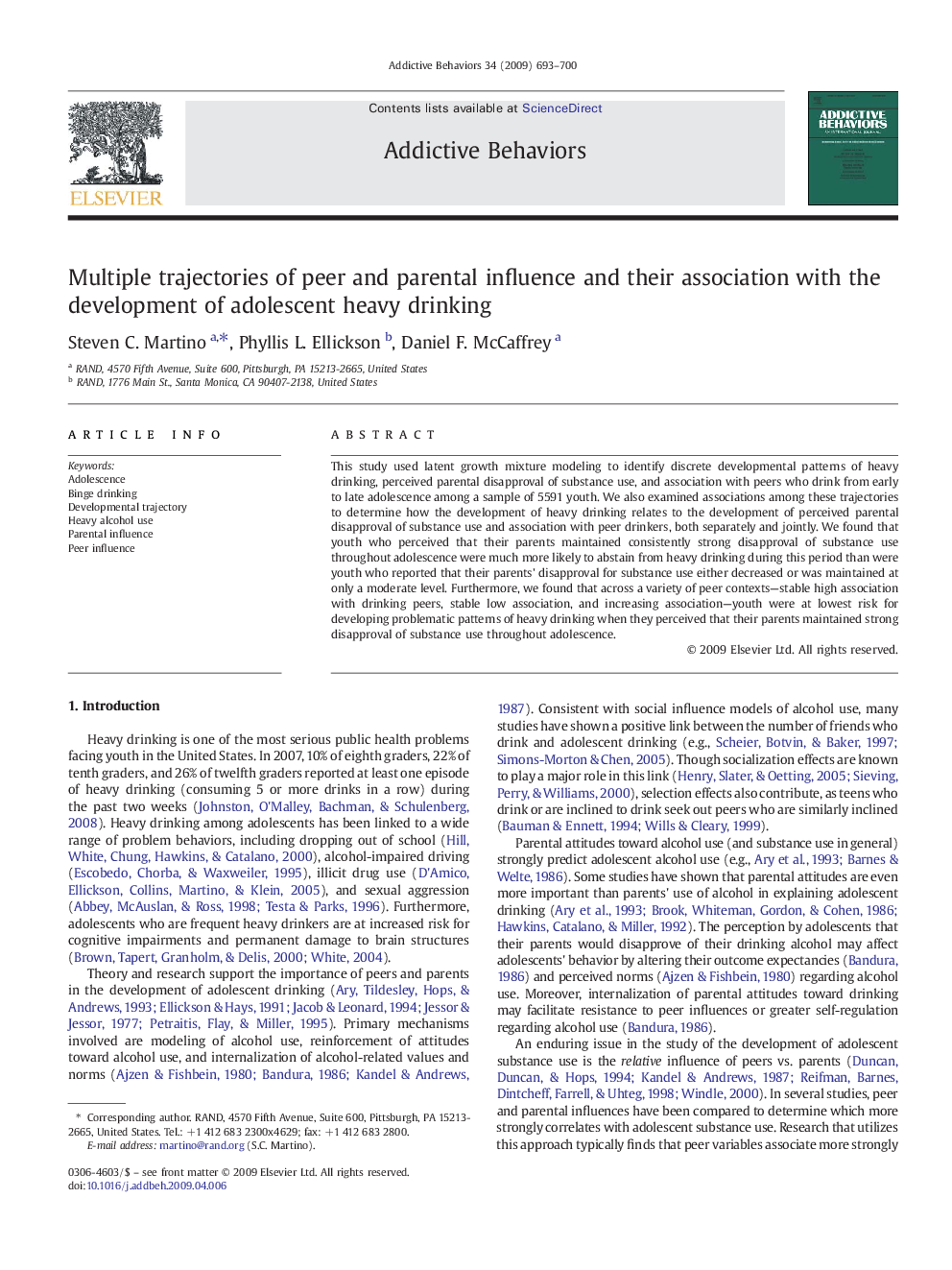| Article ID | Journal | Published Year | Pages | File Type |
|---|---|---|---|---|
| 900365 | Addictive Behaviors | 2009 | 8 Pages |
This study used latent growth mixture modeling to identify discrete developmental patterns of heavy drinking, perceived parental disapproval of substance use, and association with peers who drink from early to late adolescence among a sample of 5591 youth. We also examined associations among these trajectories to determine how the development of heavy drinking relates to the development of perceived parental disapproval of substance use and association with peer drinkers, both separately and jointly. We found that youth who perceived that their parents maintained consistently strong disapproval of substance use throughout adolescence were much more likely to abstain from heavy drinking during this period than were youth who reported that their parents' disapproval for substance use either decreased or was maintained at only a moderate level. Furthermore, we found that across a variety of peer contexts—stable high association with drinking peers, stable low association, and increasing association—youth were at lowest risk for developing problematic patterns of heavy drinking when they perceived that their parents maintained strong disapproval of substance use throughout adolescence.
